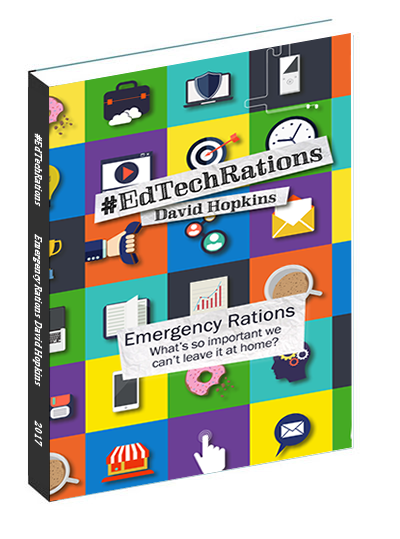Book Review: Fostering self-efficacy in HE Students
This book takes me out of my usual reading habit and away from the work I’ve been doing for the last few years, and back to or rather closer to the kind of work / contact I used to have with academics and students. Laura Ritchie’s book ‘Fostering self-efficacy in Higher Education Students‘ is a well structured, well written, and well argued insight into the kinds of student-focussed capabilities that HE, and by association those who work in HE, should be aware of.
I have become very aware of this thing we call the ‘student experience’, about how we need to include the student body in more and more process and decisions in how courses, programmes, and administrative functions are organised and run, Through their inclusion we have an opportunity to capture their interest and passions in a way we can structure around the core materials needed for the structured learnin objects. This means, or rather should mean, we have a stronger ‘product’ to offer the students, making them a stronger ‘candidate’ when they graduate and enter the workplace. Whether we’re looking at business leaders, doctors, researchers, or other graduate employment routes doesn’t matter. What matters is that the student has had the best attention we can give them and the best outcome for their future. What they do with this is up to them, but we can say, with hand on heart, we did everything we could.
Student experience is, obviously, more than just this though. Learning and learning objectives are just a small part of attending university. There’s things like the Student Union, sports club, library, friends, family, work/jobs, happiness, health, etc. We have the ability to input and affect how these things happen, across campus (and beyond) so should we?
Well, obviously, yes we should.
“As teachers in higher education, we strive to put students at the centre of learning and teaching, and understanding the formation and role of self-beliefs can have a huge impact on this process. Developing self-efficacy happens through communication and active learning, which facilitates a two-way interaction between learners and teachers. This fosters trust, so teachers and learners can risk having moments of vulnerability where we are willing to expand learning horizons and grow. With established self-efficacy beliefs, students will have both the foundation and tools to successfully continue their learning after leaving the higher education environment.” Laura Ritchie
Of the themes of the books the ones closest to my personal interests dealt with ’embedding the foundations of self-efficacy in the classroom’ and ‘implications for life-long connections with learning and teaching’. I admit I’ve only skimmed the other sections so I could really focus on these two chapters that have a greater pull.
This final section, about ‘life-long connections with learning and teaching’ fits my current thinking more than anything. Our ability (responsibility even?) to our students is to prepare them for their eventual progression into the work force, in whatever form that may take. Skills developed during studies with need to fit the academic requirement for study and assessment (more of that another time) but we need to represent the real-world, the world outside of academia – are these skills transferable to an employee, not student, status?
“Establishing a strong sense of self-efficacy sets the foundation for a continuing pattern of learning and achievement that happens through professional development and an active pursuit of personal growth. Planning, seeking, reflecting on opportunities for training, and peer co-learning can facilitate a positive career trajectory and keep a teacher’s perspective fresh and fitting with today’s fast-changing workplace.” Laura Ritchie
Image source: David Hopkins


















